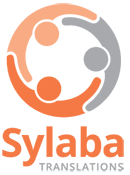Language specialists are essential in overcoming linguistic divides in the globally connected world of today, where communication transcends national boundaries. Among these experts, translator and interpreter professionals serve a crucial role in fostering successful communication between people and organizations. Although they could have identical objectives, these two occupations are very different from one another. This essay will examine eight key distinctions between the professions of translator and interpreter, illuminating the specific duties, competencies, and work settings associated with each.
On Paper or Aloud: Translator and Interpreter Professionals
The primary distinction between translators and interpreters is that the former operate with written content, while the latter do so with spoken language. Therefore, if you’ve ever read a book in a foreign language or seen a movie in a foreign language with English subtitles, you’ve witnessed the labor of a professional translation. The voice of a foreign politician speaking on the news, however, might be dubbed in English. Then you start to hear the results of a qualified interpreter.
Now that you are aware of the distinction, let’s look at what a translator and an interpreter do in order to help you discover the proper expert to suit your needs more quickly.
1. Definition and Scope of Translator and Interpreter Professionals
-
Translator Professionals
Translators are language professionals who specialize in written communication. They meticulously convert written text from one language to another, ensuring accuracy, clarity, and cultural appropriateness. Their primary responsibility is to convey the meaning and nuances of the source language while maintaining the integrity of the original text.
-
Interpreter Professionals
On the other hand, interpreters focus on oral communication. They excel in real-time translation, conveying spoken messages from one language to another. Interpreters must possess exceptional listening, comprehension, and linguistic skills to facilitate effective communication between individuals who do not share a common language.
2. Mode of Communication
-
Translation
Translators predominantly work with written text. They meticulously analyze the source material, research industry-specific terminology, and craft translations that accurately convey the original message. They have the luxury of time to review and revise their translations to ensure quality and precision.
-
Interpretation
In contrast, interpreters excel in spoken communication. They must possess remarkable listening and cognitive skills to interpret and convey messages in real-time. Interpreters work in dynamic settings such as conferences, courtrooms, or international events, where they interpret speeches, conversations, or dialogues instantaneously.
3. Time Frame and Preparation
-
Translation
Translators typically work with extended timeframes, allowing them to carefully plan their work. They can schedule projects based on their availability, and they have the flexibility to manage multiple assignments simultaneously. This flexibility allows them to conduct thorough research, consult references, and deliver polished translations within agreed-upon deadlines.
-
Interpretation
On the other hand, interpreters must be prepared to work in real-time. They are often required to provide immediate translation during meetings, conferences, or other live events. This necessitates excellent memory, concentration, and the ability to think quickly on their feet.
4. Skills and Expertise of Translator and Interpreter Professionals
-
Linguistic Proficiency
Both translator and interpreter professionals need to be highly proficient in multiple languages. They possess a deep understanding of grammar, vocabulary, idiomatic expressions, and cultural nuances in both the source and target languages. Linguistic proficiency forms the foundation of their work, allowing them to accurately convey meaning and intent.
-
Cultural Knowledge
Translators and interpreters must also possess cultural knowledge related to the languages they work with. They understand the cultural subtleties, customs, and taboos associated with different regions or countries. This knowledge enables them to produce culturally sensitive translations and facilitate effective cross-cultural communication.
-
Subject Matter Expertise
Additionally, both translators and interpreters often specialize in specific subject areas. They acquire expertise in fields such as legal, medical, technical, or literary translation, allowing them to grasp complex terminology and convey it accurately. This expertise ensures that translations or interpretations are contextually accurate and appropriate.
5. Tools and Resources
-
Translation Tools
Translators rely on various tools and resources to enhance their productivity and accuracy. Translation software, such as computer-assisted translation (CAT) tools, helps manage terminology, ensure consistency, and streamline the translation process. They also refer to dictionaries, glossaries, and industry-specific references to maintain precision in their translations.
-
Interpretation Equipment
Interpreters often utilize specialized equipment to aid their work. This includes headsets, microphones, and sound systems that allow them to listen to the source language and provide simultaneous interpretation to the target audience. These tools enable interpreters to deliver seamless, real-time translations in dynamic environments.
6. Working Environment
-
Translation
Translators typically work in quiet settings such as offices, libraries, or their homes. They have the flexibility to choose their working hours, and they can create an environment that promotes focus and concentration. This autonomy allows them to work at their own pace and deliver high-quality translations.
-
Interpretation
In contrast, interpreters often find themselves working in bustling and challenging environments. They may be required to travel to different locations, such as conference venues or diplomatic settings. Adaptability, quick thinking, and the ability to manage stress are crucial for interpreters to provide accurate and reliable translations on the spot.
7. Revision and Editing
-
Translation
Translators have the luxury of time for revision and editing. They can carefully review their translations, ensuring accuracy, coherence, and stylistic consistency. They can consult with clients or subject matter experts to address any concerns or incorporate feedback, ultimately delivering refined and polished translations.
-
Interpretation
Interpreters, due to the real-time nature of their work, cannot revise or edit their interpretations once they have been delivered. They must rely on their extensive knowledge, language skills, and concentration to ensure accuracy during the interpretation process.
8. Career Paths and Opportunities
-
Translator Professionals
Translators have diverse career paths and opportunities. They can work in various industries such as publishing, localization, technical writing, or freelance translation. Translators can specialize in specific subject areas or become certified translators, providing their expertise in legal, medical, or financial translation.
-
Interpreter Professionals
Interpreters often find opportunities in conference interpreting, diplomatic settings, legal proceedings, or as freelance interpreters. They may also work as community interpreters, bridging the language gap in healthcare, social services, or other public sectors. Interpreters with exceptional skills and experience may work for international organizations or government agencies.
When Might You Need a Translator?
Businesses typically hire a translator to:
- Translate sales or marketing materials into another language
- Translate creative or campaign messaging
- Reading and correcting machine translated materials
- Writing speeches in different languages
- Translating direct communications, e.g. letters or e-mails into the native language of the recipient
- Translating legal written documents such as health and safety policies, employment contracts etc. into the language spoken by the employee
- Making travel arrangements via e-mail
When Might You Need an Interpreter?
Businesses typically hire an interpreter in the following scenarios:
- When a customer contacts your help or support centre and wants to speak in their native language
- When exhibiting at an event or conference, it can help to have an interpreter on the stand with you to help facilitate communications in the native language of attendees or global attendees from other markets
- When having business calls or meeting with those who speak little of your native language
- In legal proceedings or grievance scenarios, to facilitate conversation with the employee in question
- Coaching how to deliver a speech in a specific language
- Interpreting recorded communications, e.g. phone calls
- Making travel arrangements over the phone
Conducting Business Globally Requires Both Translators and Interpreters Professionals
The above responsibilities outlined for interpreters and translators indicate key differences, but ultimately one thing is clear – both types of professionals are needed when conducting business globally.
The ability to communicate in the native language of target markets makes hiring employees , management of staff, suppliers and distributors a more seamless process and ensures greater cut-through with increasing your customer base and penetrating foreign markets.
Realising the different background and skillsets of each type of professional emphasises the need to use only specialist interpreters for verbal communications and translators for written communications. That’s the only way to truly get your foreign market communications “right”, first time and every time.
At Sylaba we deliver NAATI certified translation services into 65+ languages. Spanish, Hindi, Arabic and Greek are some of the top languages that we translate.
Other articles that you might find useful:
Related Posts

Get a quote today
"*" indicates required fields
Subscribe today to receive the latest insights and updates from Sylaba Translations










